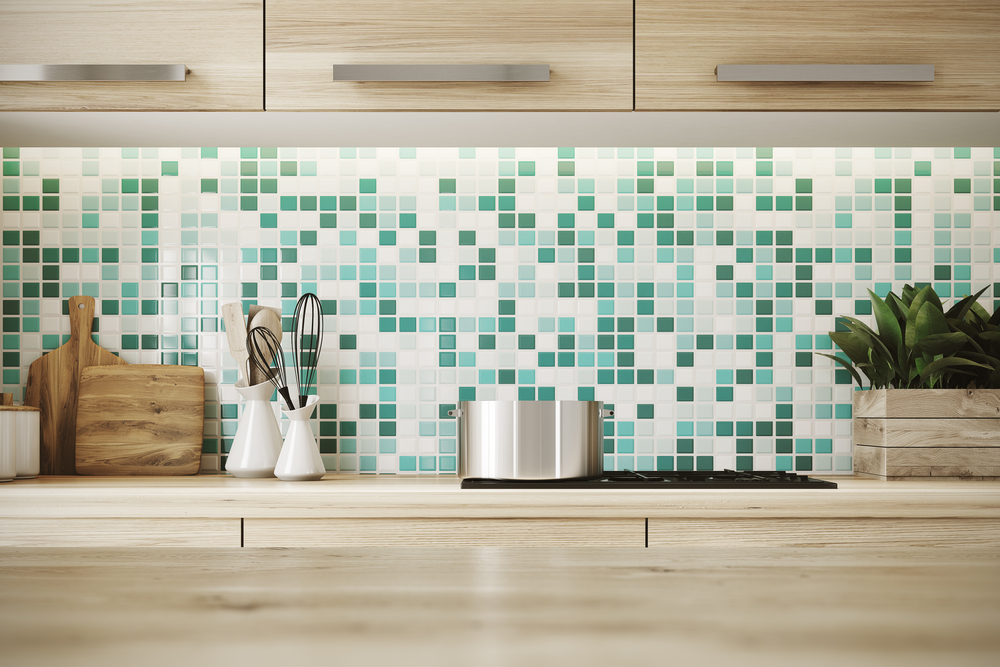Choosing the proper countertops or flooring materials for your kitchen can be quite tricky. There are many factors to consider, including water contact, location, budget, and the like. In most cases, however, tiles are usually the best choice for kitchens.
This is because tiles are quite customisable, durable, easy to install and maintain, and are quite nice to look at. They’re also usually the most efficient choice considering the normal activities in a kitchen.
6 factors to consider when choosing kitchen tiles
Choosing which tiles to install in the kitchen will require quite a bit of pondering. There are many factors that need to be considered before finally installing the tiles. This will ensure that they do not get damaged easily, and that they perform their functions well! Here are 8 factors to ponder on while choosing.
1. Aesthetics – tile colour, size, etc.
The best way to stay motivated while cooking is to have a nice kitchen in the first place! When choosing tiles for your kitchen, make sure that you consider tile colour, size, glossiness, and other factors. Make sure that you also consider the general aesthetic of the room.
Do not just get tiles because they look nice. First think of which tiles can fit the general style or theme of your kitchen. Once you do, then start choosing the size and colour. Remember that you’re not just getting one tile! You need to ensure that all the parts will fit together nicely, and that the end effect is something that is desirable for your eyes.
2. Contact with water
Some parts of the kitchen are more prone to being waterlogged compared to others. For these areas, consider installing waterproof tiles that do not trap water. Flat tiles will usually be best. Also consider the gaps in between the tiles. If these gaps are harder to dry due to their size and they are found in areas that get wet often, then reconsider. This situation may increase the chances of moulds and mildew growing.
Some tiles are also waterproof. Consider using these in the parts of your kitchen that get wet often.

3. Cleaning considerations
Some tiles are harder to clean than others. If the kitchen surface that you want to install tiles on to is prone to oil splashes or sauce spills, then get easy-to-clean tiles.
Generally, tiles that have larger spaces in between them are easier to clean as they do not trap dirt. As for the tiles themselves, glossy ones are easier to wipe compared to matte surfaces.
4. Heat
Less dense or thinner tiles are more prone to heat damage. If you’re looking to place tiles on surfaces near your oven or stove, then consider using thicker tiles. Also think of the surfaces where you’ll be placing hot objects and make the necessary adjustments.
5. General function of the surface
If the surface that you’re installing tiles on to is prone to more impact or sees more everyday use, then make sure you install sturdier tiles. If you’re looking for backsplash ideas, then less durable tiles can be considered. This is important. Careful planning is needed to make sure that your tiles last long.
6. Price
Money doesn’t grow on trees. Thus, before you actually buy the tiles, make sure that they are within budget. This doesn’t mean though that the best tiles are the most expensive! Consider the materials that can do the job while still within your budget.
Contact Ideal Tiles for great advice on home renovation
Do you have any particular kitchen tiles in mind? Or are you still choosing what to install? Look through our collection at Ideal Tiles! We provide a large variety of tiles that suit your home needs. Our tiles range from kitchen tiles to bathroom tiles, and our materials are nothing short of the best. Contact us today for more enquiries.




